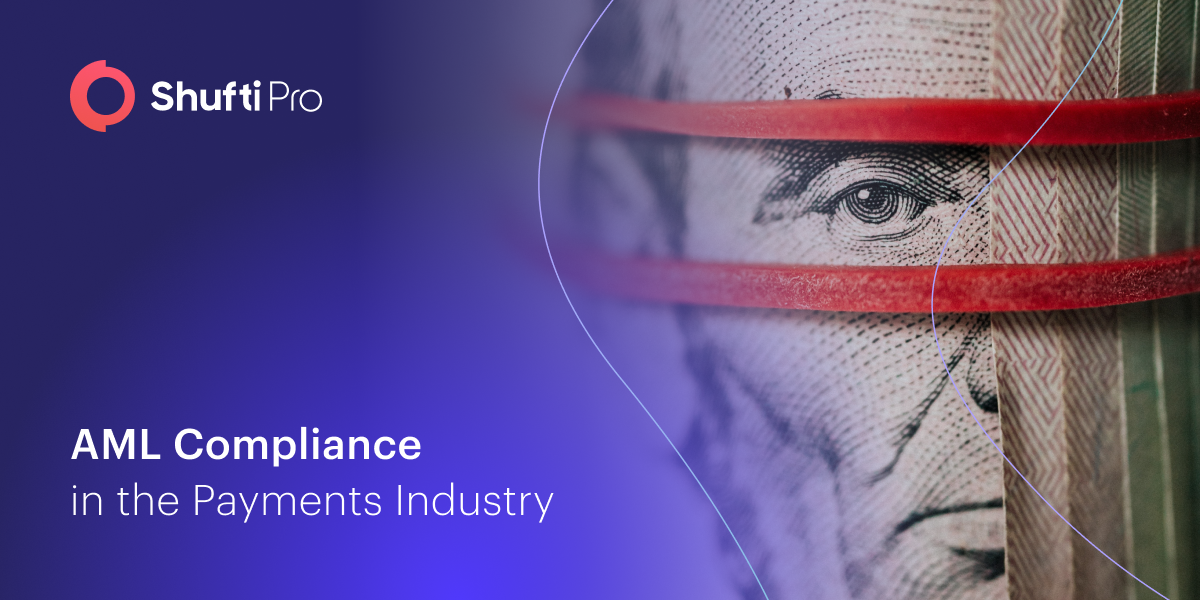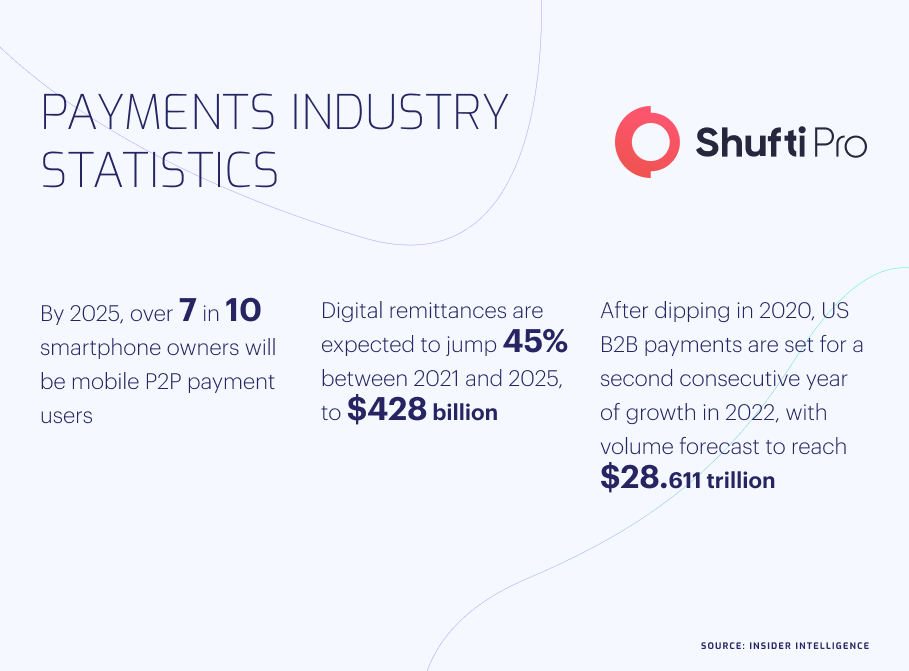AML Compliance – Mitigating Financial Crime Risks in the Payments Industry

After the Covid-19 pandemic gave rise to the digital payments trend, the world has seen rapid growth in the digital transformation of the entire payments industry. Every business is now completely dependent on the speed of digital payments, both incoming and outgoing. The majority of CEOs have the opinion that the transformation and improved speeds of digital payments have contributed to more efficient operations. 2022 has been a decisive year in terms of how businesses deal with payments and the payments industry is fast becoming the foundation of the global economy. That being said, the sector is still a hot target for money launderers.
Overview of the Payments Industry
Anti-Money Laundering (AML) regulations for the payments industry have been updated and made more stringent after the Paris-based global watchdog FATF (Financial Action Task Force) released its first report on new payment methods in 2006. Firms operating within the payments sector as well as other financial firms are urged by regulatory authorities to develop and implement a robust AML compliance regime to prevent financial crimes like money laundering and terrorist financing.
Payments services have been offered to businesses and individual entities for quite some time, but the recent two decades have demonstrated rapid growth in the field of specialised payments. In just the last 10 years, e-commerce platforms have rapidly adopted digital payments services. The most notable growth, about half of the total percentage, has been seen in the consumer-to-business and business-to-consumer payments.
The Digital Shift
In Europe and North America, digital payments are growing at rates as fast as two times the growth of their GDPs. Similarly, Asia is experiencing even faster rates of adoption and growth. The surge in digital payments and transactions has been the key to the enormous growth of the e-commerce as well as m-commerce industries that have almost completely ditched cash payments. Digital payments mainly come in the form of credit cards but there have been innovations in the form of digital wallets. Considering the current trends, it is safe to say that the boom in digital payments is here to stay.
However, one of the unwanted risks that are rising with the growth of digital payments is the increase in financial crimes like money laundering. If financial institutions do not take necessary steps to mitigate these risks, they can do more damage than expected. The lack of effective AML controls can lead firms in the payments sector to be scrutinised by financial regulators. Moreover, banks are encourage to verify not only their customers but also the businesses that become part of the network to implement robust Anti-Money Laundering (AML) and fraud prevention measures.
Instead of waiting for regulations to be introduced for the purpose of eliminating fraud and financial crime, payments service providers can take steps on their own to incorporate advanced AI-driven technology solutions. For instance, implementing an identity verification measure allows payments service providers to know who they are dealing with right when they onboard new clients, hence preventing the risks of fraud arising from a customer or an entity with a history of suspicious activities.
Regulations for the Payments Industry
In light of the increasing cases of money laundering in the payments industry, regulators have started shifting their focus on such businesses. For instance, the UN Office on Drugs and Crime has stated that it is not easy to estimate the exact values of laundered money but have risen significantly to reach approximately 5% of the global GDP, which is equivalent to an amount between $800 billion to $2 trillion annually.
Digital payments channels are being used negatively by criminal entities engaged in restricted illicit activities like drug trade, tax evasion, money laundering, and consumer scams. This is a clear sign of the payments industry being vulnerable to financial crimes. According to the global standard-setter for financial institutions, the Financial Action Task Force (FATF), money laundering cases and AML failures on part of payments service businesses have increases through and after the Covid pandemic.
This has been seen especially in the customer services sector, where the potential for identity fraud has reached above and beyond after the introduction of specialised services during the Covid pandemic. In order to deal with the rising fraud cases, many payments service providers have implemented measures like ongoing transaction monitoring. Similarly, financial regulators have come up with new and updates policies and regulations for remote customer onboarding and CDD (Customer Due Diligence). KYC verification and Customer Due Diligence are now commonly implemented by financial institutions to ensure compliance with KYC/AML regulations. For high-risk entities, it is advised to implement Enhanced Due Diligence (EDD), where customers are screened against global watchlists and PEP (Politically Exposed Persons) lists.

Financial Crime Concerns in the Payments Industry
The increasing volumes of digital payments are exceeding the potential of payments services businesses to manage operational risks at the same time as offering a great customer experience. If left unnoticed, the risks of financial crimes in the payments industry can pose a significant threat to organisations. For instance, payments service providers that offer large scale acquiring services can be vulnerable to fraudulent entities that are established with the purpose of assisting money launderers in hiding their illegally obtained funds. The absence of robust KYC mechanisms to onboard customers on digital payments platforms can lead to the risk of hefty penalties from regulatory authorities as well as irreversible reputational damages.
Payments service providers deal with the transfer of money to and from numerous entities, which means an increased risk of the involvmement of sanctioned businesses or customers. Therefore, businesses operating in the payments industry require scalable identity verification and AML screening solutions. Additionally, payments service providers that deal with transactions related to virtual asset service providers (VASPs) are exposed to a new variety of risks, including the vulnerability to financial crime and the risk of repuational damage.
What Shufti Offers
Shufti is a Payment Card Industry Data Security Standard (PCI DSS) compliant identity verification service provider based in the UK. Powered by thousands of AI models, Shufti’s state-of-the-art Anti-Money Laundering services allow payment service providers to cope with evolving regulations. This is achieved by screening customers against 1700+ financial watchlists in less than a second with an accuracy of 98.67%.
In addition to this, our solution helps businesses to maintain data integrity and ensures that cross-border digital payments remain secure from data breaches, allowing customers to experience frictionless services.
Want to know more about our AML screening services for the payment industry?

 Explore Now
Explore Now













